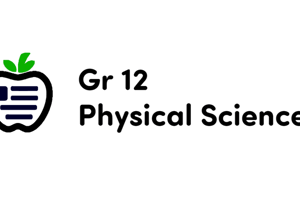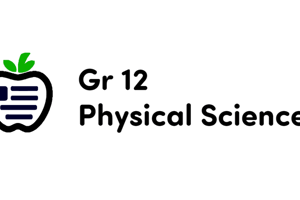Podcast
Questions and Answers
What fundamental concept in classical mechanics is described by the equation F=ma?
What fundamental concept in classical mechanics is described by the equation F=ma?
- Angular momentum
- Mass in relation to acceleration (correct)
- Work-energy theorem
- Velocity in relation to force
Which of the following is NOT a scalar physical quantity?
Which of the following is NOT a scalar physical quantity?
- Length
- Velocity (correct)
- Time
- Mass
In physics, what does a vector quantity possess that a scalar quantity does not?
In physics, what does a vector quantity possess that a scalar quantity does not?
- Direction only
- No defined attributes
- Both magnitude and direction (correct)
- Magnitude only
Which of the following is a topic included in dynamics in physics?
Which of the following is a topic included in dynamics in physics?
What does Newton's third law of motion state?
What does Newton's third law of motion state?
What physical property is related to the ability of a material to resist deformation?
What physical property is related to the ability of a material to resist deformation?
Which of the following is an example of a chemical property?
Which of the following is an example of a chemical property?
In the equation $E = mc^2$, what does the variable $c$ represent?
In the equation $E = mc^2$, what does the variable $c$ represent?
Which branch of physics deals with the study of motion and the forces that cause it?
Which branch of physics deals with the study of motion and the forces that cause it?
What is the term used to describe the property of a material that allows it to return to its original shape after being deformed?
What is the term used to describe the property of a material that allows it to return to its original shape after being deformed?
Flashcards are hidden until you start studying
Study Notes
Introduction
Physics is the branch of science concerned with the study of matter, energy, and their fundamental interactions. It encompasses a wide range of topics, including dynamics, physical quantities, and properties of matter. Understanding these concepts is crucial for comprehending the natural phenomena around us and predicting the outcomes of various scientific experiments. This article will delve into these subtopics and explore their importance in the field of physics.
Dynamics
Dynamic systems involve objects in motion and the forces acting upon them. Newton's laws of motion describe these relationships. For instance, F=ma (force equals mass times acceleration) is a fundamental concept in classical mechanics. It describes how the force applied to an object determines its resulting acceleration, assuming a consistent relationship between mass and acceleration. Dynamics also includes the study of friction, work, and energy, which are essential for understanding real-world situations involving moving objects.
Physical Quantities
In physics, physical quantities are measurable attributes of objects or processes. They can be scalar, such as mass, length, and time, or vector, like velocity, acceleration, and force. These quantities are often interrelated through equations and principles, allowing physicists to describe and predict the behavior of dynamic systems. For example, the formula E = mc² relates energy, mass, and the speed of light, providing insight into the relationship between these physical quantities.
Properties of Matter
Properties of matter refer to the characteristics that distinguish different types of substances from one another. These properties can be categorized into physical and chemical properties. Physical properties include size, shape, density, hardness, color, conductivity, and elasticity. Chemical properties, on the other hand, relate to the behavior of substances when undergoing chemical reactions. Different types of matter (solid, liquid, gas, or plasma) exhibit distinct properties due to their molecular structures and interactions.
Understanding these subtopics is vital for grasping the fundamentals of physics. By exploring dynamics, we gain insights into the behavior of objects in motion; studying physical quantities helps us understand how these properties govern the relationships between different aspects of the physical world; and examining the properties of matter allows us to classify and compare various substances based on their inherent qualities.
Studying That Suits You
Use AI to generate personalized quizzes and flashcards to suit your learning preferences.




